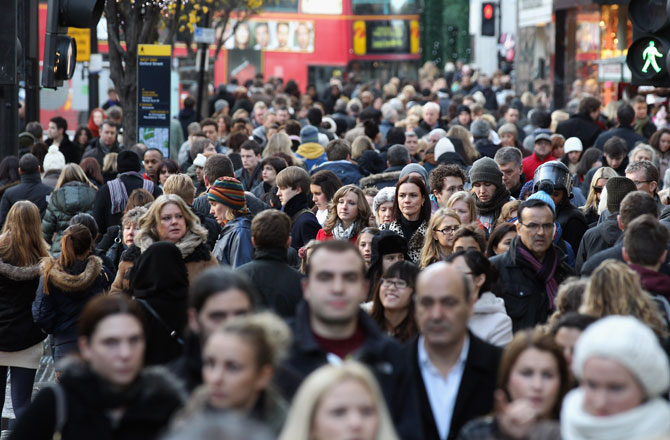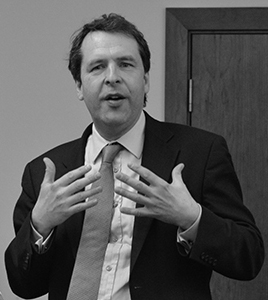Philip Booth: Morality, taxation and coercion

It is often argued that taxation to promote the position of the poor is somehow a moral act on behalf of those that are better off and paying taxes to finance the transfers to those who are worse off. It is not.
It is not an intrinsically moral act for the same reason that, if I go out this evening with the intention of beating up my brother and I am stopped from doing so because he is with two muscly friends, I have not committed an act of moral restraint. If I am put in prison for not paying taxes, I have not committed a moral act as a result of paying those taxes. There is no moral equivalence between paying taxes because you have to and the self-sacrifice that comes with philanthropy. Indeed, taxation can exhaust our ability to make moral choices to help our families, our neighbours and society more widely.
The moral problems that people often feel exist with a free and prosperous economy such as selfishness and an individualistic mindset are no less inherently present in an economy with high taxes. Self-interest can be every bit as present in the political system as it is amongst individuals. The idea that we have two natures – a selfish one in the private sphere but a better, more refined, less self-interested nature that is present in the public sphere has no justification in moral philosophy or empirical evidence. After all, when did you ever see a demonstration in a town calling for the local hospital to be closed down so that the neighbouring town could have more resources? Indeed, the zero-sum-game nature of public sector activity promotes selfishness and conflict – witness the lengths people go to in order to obtain places in good state schools, including fraud. In the private sphere, co-operation and providing something of value to customers tend to be rewarded.
The moral limits of taxation
So, there is no credible moral case for a high tax economy. But we can go further. Ultimately, taxation is an issue of how we view property rights. As Pope Leo XIII noted, property (the money that we have) is just wages in another form. To take another person’s property through taxation is to deprive a person of his justly earned wages.
Of course, the state does need resources and it is legitimate to tax people’s earnings in relation to their ability to pay in order to provide those things that are needed for the protection of society as a whole (defence, police etc.). It is also legitimate to tax people to ensure that all in society can have the resources to live in dignity if they are not provided by charity (through the provision of housing, food, healthcare etc.) – though these things do not need to be provided directly by the state.
This might justify taxation of between 5 and 20 per cent of national income – nothing like the 46 per cent of national income that the state spends in the UK today.
Practical aspects
In many practical ways, our tax system is morally problematic. It discriminates against family formation – with results that we see very clearly and, of course, it discourages work. A tax system that undermines family and work cannot be thought of as moral.
And, of course, when the state is spending nearly half of national income, there can be no general agreement about the morality of the things on which it spends money. In spending over 46 per cent of national income, the state finances all sorts of other things with my money that I think are morally wrong – and probably different things that you think are morally wrong.
A tax system in a nation of 65 million people, mediated by a huge bureaucracy controlled by a government called to account in elections every five years, cannot possibly replicate the true personal human compassion and philanthropy that is necessary if we are to provide the poor with genuine help. The individual, in this context, becomes a small cog in a giant wheel whose right of initiative has, in large part, been taken away and who has been encouraged to delegate his genuine societal responsibilities to those in need to the state. As Pope Benedict has said: solidarity is the responsibility of everyone to everyone and it cannot be delegated to the state.
This does not mean that the state should not provide for the poor. However, a low tax economy is conducive to social co-operation, individual initiative, the flourishing of families and high levels of employment. Furthermore, it is also conducive to the genuine voluntary assistance that the better off must give to those who need it. Society is not more moral when we discharge our responsibilities to those in need by voting for a party that will form a government that will manage a bureaucracy that takes money from one group of people to give to another group of people with neither group ever meeting each other.

Philip Booth is Senior Academic Fellow at the Institute of Economic Affairs and Professor of Finance, Public Policy and Ethics at St. Mary’s University, Twickenham. He also holds the position of (interim) Director of Catholic Mission at St. Mary’s having previously been Director of Research and Public Engagement. From 2002-2016, Philip was Academic and Research Director (previously, Editorial and Programme Director) at the IEA. From 2002-2015 he was Professor of Insurance and Risk Management at Cass Business School. He is a Senior Research Fellow in the Centre for Federal Studies at the University of Kent and Adjunct Professor in the School of Law, University of Notre Dame, Australia. He is also an Associate Fellow with the Centre for Enterprise, Markets and Ethics (CEME).
